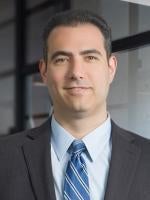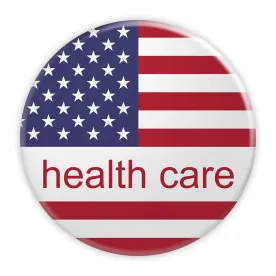The long-awaited legislation to outlaw surprise out-of-network medical bills (A-2039) passed the New Jersey legislature on April 12, 2018 and still awaits Governor Murphy’s signature to become law. The issue and various forms of this legislation have been debated for over eight years. This bill, if signed into law, will substantially impact all of the stakeholders-patients, insurance companies, medical practices, hospitals and other licensed healthcare facilities. The current bill, as presented to Governor Murphy, has strong consumer protections for “covered persons” (patients) that require providers to disclose their out-of-network status with particular insurance plans.
This bill also outlines disclosure requirements for carriers (insurance companies), healthcare facilities and healthcare professionals and creates limitations on the amount and methodology by which healthcare facilities and healthcare professionals would be paid by the insurance company. This post is focused on the bill as it affects healthcare professionals –individuals licensed by their respective NJ licensing boards, and effective medical practices that utilize out-of-network professionals (“OON Professionals”). It is worthy to note that the bill’s provisions related to OON Professionals primarily focus on outpatient non-emergency services.
Who does this bill protect?
This bill protects “covered persons” who participate with certain companies authorized to offer health benefits, from “surprise” out-of-network bills, especially in the instances when the person is treated by an “inadvertent out of network provider,” in the case of an emergency treatment or when the person had no choice in selecting his or her provider. In the case of elective procedures, the OON Professional, the bill requires the patient to affirmatively acknowledge that he or she knowingly, voluntarily and specifically selected an out of network provider to provide the services.
This bill does not apply to patients/individuals who participate with Medicaid, Medicare, Medicare Advantage, accident only, credit, disability, long-term care, TRICARE supplement coverage, coverage arising out of a workers’ compensation or similar law, automobile medical payment insurance, PIP and hospital confinement indemnity coverage. This bill does not cover patients that are participants in a self-funded health plan unless the patient elects to be subject to the protections of this bill.
What are the disclosure requirements for Healthcare Professionals?
Healthcare professionals are required to disclose in writing or on a website the health benefits plans with which it participates prior to the provision of non-emergency services, and then again verbally or in writing, at the time of an appointment. If the healthcare professional is OON Professional, then:
- Prior to the scheduling of the non-emergency procedure, inform the patient that the professional is out of network and that amount or estimated amount for the services will be made available upon request.
- Upon receipt of a request for the cost of the services, the healthcare professional would use the CPT code to provide a written estimate for the bill that the patient would receive, and a list of CPT codes associated with that service that may arise when the service is provided.
- Inform the patient that he or she will have a financial responsibility applicable to healthcare services provided by an out of network professional in excess of his or her copayment, deductible, or coinsurance and the person may be responsible for amounts in excess of the allowed amounts under their plan.
- Advise the patient to contact their insurance company for further consultation on the costs.
- A physician must provide to the patient, to the extent the information is available, name, practice name, mailing address and phone number of any health care provider schedule to perform anesthesia, laboratory, pathology, radiology or assistant surgeon services in connection with care provided in the physician’s office for the patient or coordinated or referred by the physician for the patient at the time of the referral coordination of services with that provider.
- For a patient’s schedule facility admission, the physician shall provide the patient and the facility with the name, practice name, mailing address and telephone number of any other physicians whose services would be arranged by the physician and are scheduled at the time of the pre-admission testing, registration or admission at the time of the non-emergency services are scheduled.
- The physician must provide instructions as to how to determine the health benefits plans in which the provider participates and recommend that the covered person should contact the carrier for consultation on costs and associated with services.
Notably, the receipt or acknowledgement by patient of any required disclosure does not waive any protection regarding in network health benefits plan coverage available to the patient.
How would an OON Professional be paid by the patient under this bill?
Unless the patient “knowing, voluntary and specifically” selects the OON Professional, the OON Professionals may not bill a “covered person”, except for the applicable deductible, copayment or coinsurance amounts that would apply if the covered person utilized an in-network health care provider for the covered services. The OON Professional would be required to accept the patient’s in-network co-pay or co-insurance amount. Balance billing for the out-of-network charge is not permissible under this bill unless the patient had selected the OON Professional as noted above. However, if the OON Professional wishes to bill the patient at the out of network patient balance, the OON Professional will likely resort to obtaining documentation acknowledging that the patient’s had “knowingly, voluntary and specifically” selected the out of network provider.
How would the OON Professional get paid by the insurance company and how much?
Under this bill, the OON Professional gets paid by either negotiating with the insurance company or entering into a binding arbitration with the insurance company for a specified amount.
The OON Professional may still bill the insurance company for the services rendered. Then, much how it is done today, the insurance company would either pay the claim or determine whether it is excessive. If the insurance company is attempting to negotiate the settlement of the claim, it must provide a notice to the health care provider.
If the difference between the insurance company and the OON Professional’s final offer is $1,000, then the insurance company and/or the OON Professional may initiate binding arbitration to determine the payment for the services by filing a request for arbitration with the Department of Banking and Insurance (“DOBI”). The arbitration decision will be one of the two amounts submitted by the parties submitted as their final offers and is binding. The decision of the arbitrator must be written and issued within 30 days after the request is submitted to the DOBI. Generally, the parties must split the arbitration fees and shall pay their costs and fees including legal fees.
Can the OON Professional write off the patient balance?
It is unclear. As the bill is currently written, an out of network health care provider may not knowingly waive, rebate, give or pay or offer to waive, rebate, give or pay all or part of the deductible, copayment or coinsurance owed by a covered person’s health benefits plan as an inducement for the covered person to seek health care services from the provider without violating this statute. However, this would not include waivers, rebates, gifts, payments or offers that fall within a safe harbor under federal laws related to fraud and abuse-such as anti-kickback and self-referrals. DOBI, Department of Health and the Division of Consumer Affairs in the Department of Law and Public Safety (various professional health care licensing boards) are empowered to promulgate rules and regulations to effectuate this and other provisions of the law.
What is the penalty for a healthcare provider to not comply with this statute?
The Commissioner of DOBI would assess a penalty for a health care professional would be not more than $100 per violation. Every day upon which a violation occurs shall be considered a separate violation, but the person shall not be liable for more than $2,500 for each occurrence.
On balance, this bill is a boon to the patients who hold certain private insurances. However, it is the OON Professional whose financial predicament is uncertain—more disclosure obligations, inability to bill patients for out of network copayment, and unsure of what the insurance reimbursement for each procedure will be. Will the negotiations with the insurance carrier remain the same as they are today? How many claims will be sent to arbitration? How will this affect the OON Professional’s financial viability and ability to remain in practice? These are the types of questions that the Governor’s office is likely considering as this bill awaits signature.







 />i
/>i

